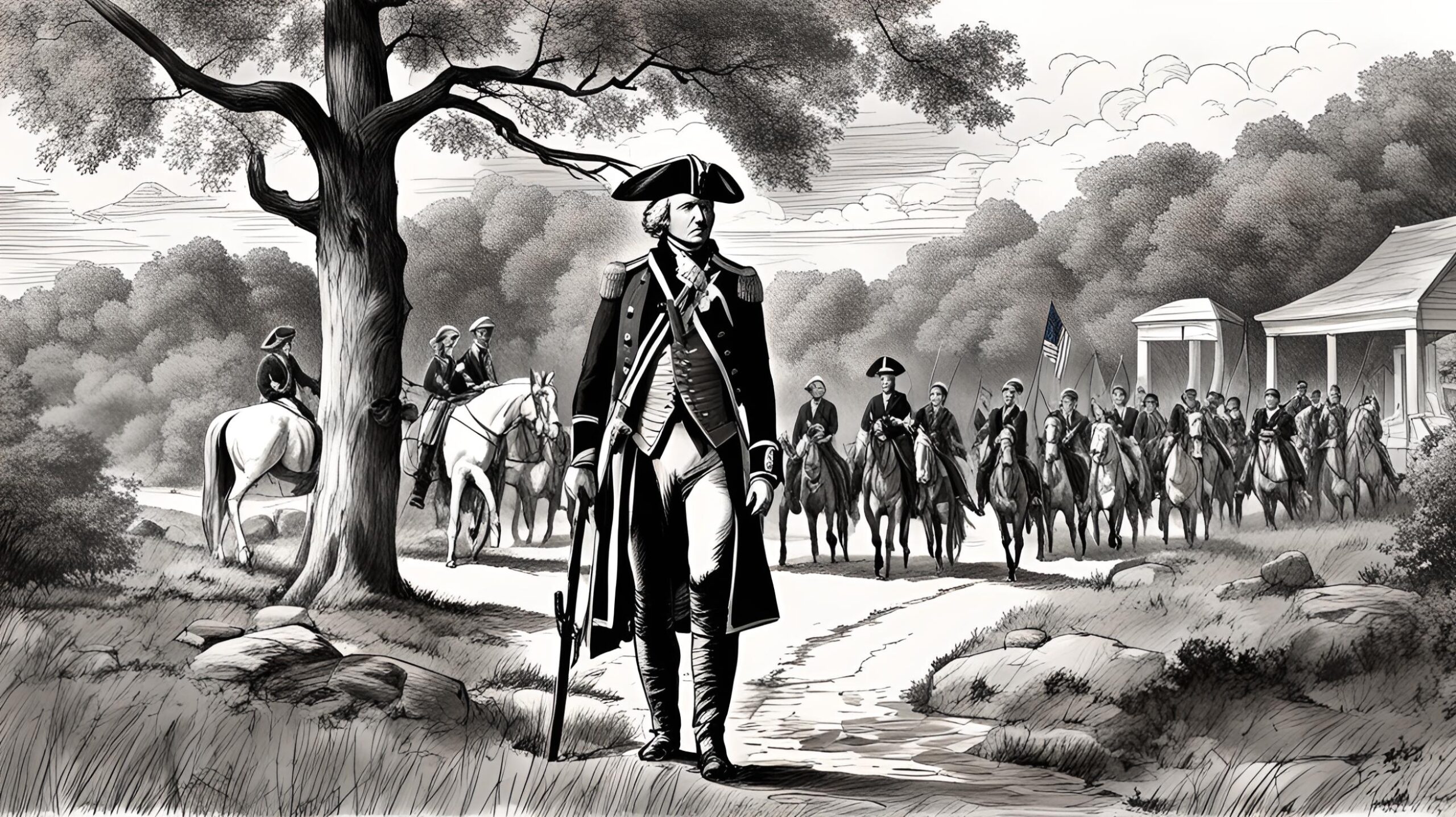Flashback to July 18
American History

In a monumental act of service and leadership that marked a significant milestone in America’s history, General George Washington, on December 23, 1783, voluntarily stepped down as commander-in-chief of the Continental Army. This historical event signified the humble relinquishing of power that laid the groundwork for the democratic foundations of the United States we know today.
General George Washington was an instrumental leader in the formation of our fledgling nation. Appointed as the commander-in-chief of the Continental Army during the early years of the American Revolutionary War, he skillfully navigated through a demanding and tumultuous period. His resignation from this prestigious position was more than a simple gesture; it was a profound demonstration of his commitment to the ideals of democracy, setting a precedent for conscious leadership and the peaceful transfer of power.
The general, who would later become the first President of the United States, was renowned for his strength, tactical acumen, and moral courage. His leadership did not merely include the courage to wield power when necessary, but also the wisdom to relinquish it when appropriate. In resigning as commander-in-chief, Washington demonstrated his unwavering commitment to these values. This act, enshrined in the annals of history, was a powerful affirmation of the principles of governance “of the people, by the people, and for the people.”
Washington’s resignation underscored the fundamental principles that separate autocratic rule from true democracy. In other parts of the world, it was—and still is—commonplace for military leaders to use their forces as stepping stones to political command, sometimes setting up dictatorships. In contradiction to these practices, Washington, after leading his men through the Revolutionary War and ensuring American independence, chose to step down from power. This unparalleled act cemented his legacy, positioning him as a paragon of democratic leadership and setting a precedent for future leaders.
One of the enduring impressions of this event is the humility inherent in Washington’s resignation. There was no triumphalism in stepping down, no grand fanfare of vanity and personal power. The simplicity and nobility of the resignation served as a reminder that the interests of the nation should be placed above personal ambition—echoing the ethos of democracy and setting a standard for future leaders.
As one basks in the glow of this momentous occasion, it’s essential to remember that the event’s impact extended beyond the American borders. Washington’s resignation reverberated across the globe, signaling to the world that America was a young nation willing to reject the often-corruptible allure of absolute power for balance and shared control. This narrative, woven seamlessly into the fabric of American culture, becomes especially significant in the context of global governance.
Digging deeper, we see that the significance of George Washington’s resignation is not about the act alone. It’s about what the act represents—the faith in the principles of democracy and sacrifice for the greater good. Though he could have retained his command and transformed his military leadership into political power, he chose to step down, thereby rooting America’s earliest days in democratic intent.
We strive for accuracy. If you see something that doesn't look right, click here to contact us!
Sponsored Content

Race riot in Harlem,…
The race riot in…

US army air service…
On July 18, 1914,…

President Harry S. Truman…
On July 18, 1947,…

Lemuel Haynes, escapes from…
Lemuel Haynes, a former…

Rebecca Schaeffer is shot…
On July 18, 1989,…

In an event very…
On July 18, 1996,…

